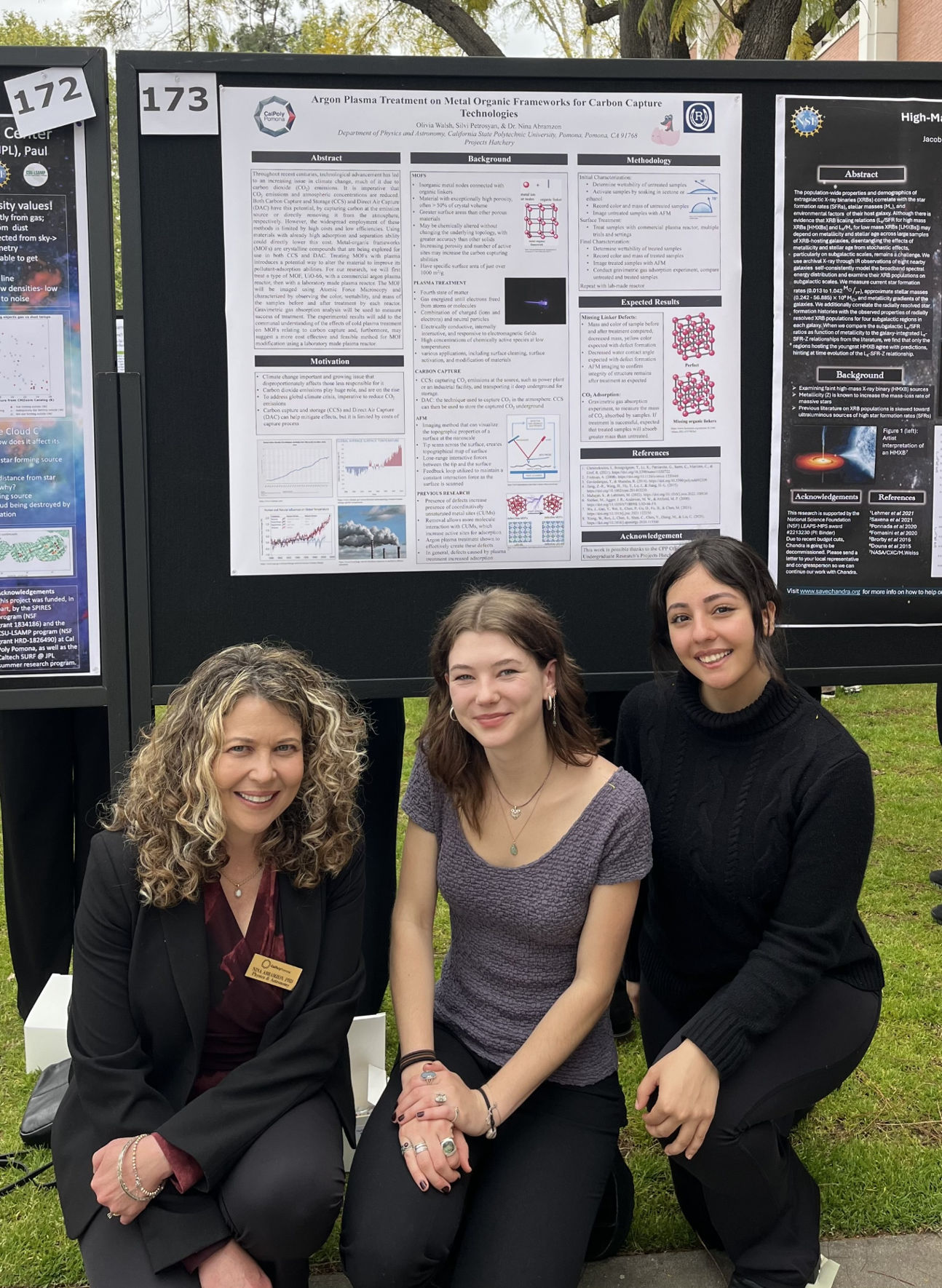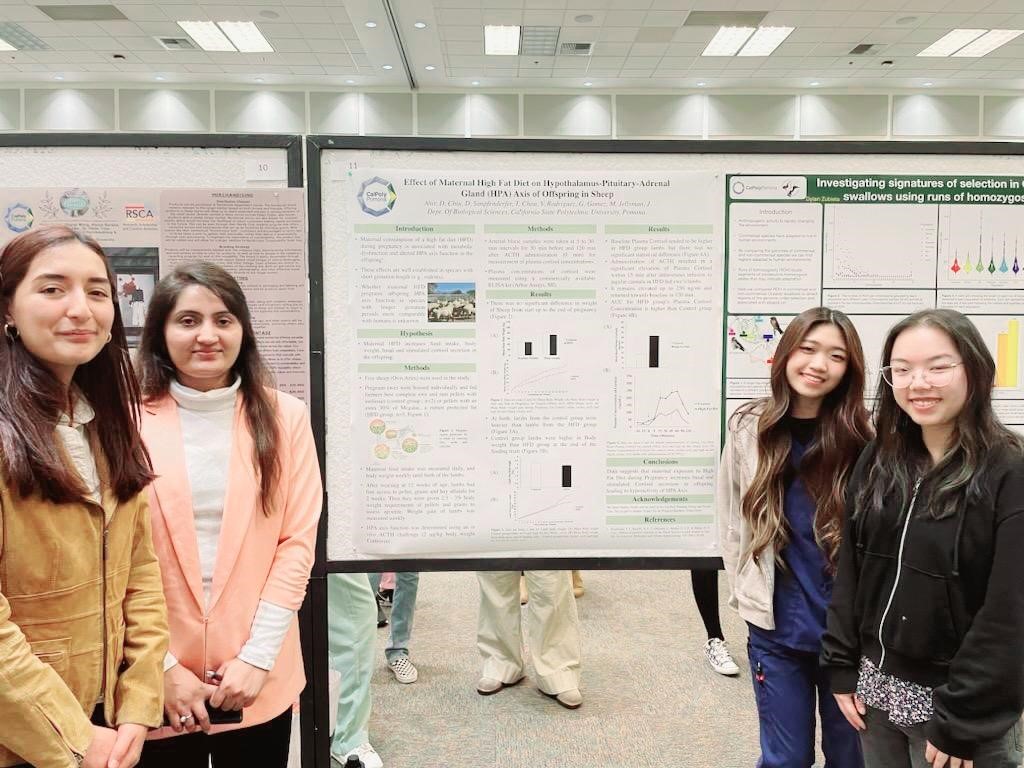Phase 3 Teams
Phase III Teams
Below are the Projects Hatchery Phase III teams. Read about the team members, mentors and learn about the projects they are working on.
Team Psijic
Water scarcity poses a significant challenge to agriculture and potable water sources, particularly in California, where droughts and overuse strain traditional water supplies. This study explores the feasibility of Atmospheric Water Generators (AWGs) as a sustainable addition for irrigation, aiming to supplement existing water systems. By providing a new possible independent water source, AWGs have the potential to enhance agricultural resilience and reduce reliance on conventional supplies.
Development of an AWG for irrigation prototype will begin on March 3rd, 2025, to evaluate water production efficiency and scalability. The project will focus on growing radishes or other fast growing vegetation to assess plant health and viability. The prototype will be constructed at home using custom-built components, allowing for controlled experimentation and modifications of AWGs for widespread agricultural use.
Team Members: Devin McGee
Mentor: Gwynn Markle, Alexander Novack


Aldhani
Team Members: Andres Torres, Roy Kachouri, Cassandra Dickie, Angelo Calderon-Cifuentes
Mentor: Yizhe Chang, Nolan E. Tsuchiya
Bronco Stride
Team Members: Andres Hernandez, Erika Nicole Consebido, Neelam Mistry, Zoe Mae Andal, Emily Ruiz, Khoa Le, Adrien Chang
Mentor: Peter Ross


Modern Consumer Decisions
Team Members: Madeline Mayers
Mentor: Randy Stein
Sheep
Team Members: Robert E. Kimble
Mentor: Bryan Ramirez


EV Battery Recycling
Team Members: Timothy Sun, Aaron G. McGlaughlin
Mentor: Maryam Shafahi
SEAD-CS
Team Members: Aravind Subramanian, Ethan Nguyen, Rasheed Albaroudi, Jacob Vasquez
Mentor: Carlos Castro Candelas


Team FSH
Team FSH is exploring the feasibility of extracting resources from nearby planets and deploying them as needed across the solar system.
Team Members: Arya Javaheri
Mentor: Paul Hottinger
Team Carbon Catchers
To address the growing need for improved carbon capture technologies, we will research the use of plasma surface treatment to increase the carbon-absorbing properties of metal organic frameworks (MOFs), a type of porous material under exploration for use in carbon capture technologies. We will first attempt proof-of-concept using a commercial plasma reactor and then use a plasma reactor developed and built in-lab to attempt similar results. Success with the lab-made reactor would imply a cost effective and accessible way to increase the efficiency of carbon capture technologies that employ metal organic frameworks.
Team Members: Olivia Walsh, Silvi Petrosyn
Mentor: Nina Abramzon, Krishna Sigdel


Kerrigan
The focus of our team is to develop a new method for collecting electroencephalogram data collection and analysis to be used in VR applications. We would like to use a well-developed speech diarization technology as a possible means to ground EEG data for binary sentiment.
Team Members: Xavier Dargan, Nureldin Mohamed, Stephen Chang, Jason Jones
Mentor: Mohammad Husain
Team PIV
Electric Vertical Takeoff and Landing (eVTOL) aircraft have recently increased in development as part of the Advanced Air Mobility initiative that aims to develop quiet and safe electric air taxis in metropolitan areas. The aerodynamic interactions between some proposed propeller configurations are not well understood. Understanding these interactions is key to creating safe and stable eVTOL aircraft without potential thrust fluctuation issues and other flight instabilities.
The PIV-BANSHEE Propeller Dynamics Study aims to utilize the capability of the Cal Poly Pomona Department of Aerospace Engineering’s advanced Particle Image Velocimetry (PIV) flow imaging system to experimentally study the flow dynamics of distributed propeller propulsion configurations seen in eVTOL aircraft concept using the BANSHEE SINCHDrone Unmanned Aerial Vehicle (UAV) as a test bed. Our study will collect and cross reference wind tunnel force/moment data and PIV optical flow data to determine the ideal propeller spacing configuration.
Team Members: Stephie Soloarivony, Amirreza Yazdanfar, Jenisse Chitay-Espinoza, Paden Hall, Ethan Ballard, Jaime Miranda, Gwynn Sumagaysay, John Cruz, Aaron Zuckerman, Isaac Khan, Devon Boyd, Kai Arellano, Daniel Malimban, Aidin Weissler, Alton Lo
Mentor: Steven Dobbs, Charlie Royas


Senior Project (Ragnapatterns)
Creating a generative AI to output a new level in a rhythm game, Ragnarok, with just the input of a song and desired difficulty.
Team Members: Nikhil Kowdle, Estefania Chavez
Mentor: Markus Eger
Buttercups
Our project is aimed at understanding the developmental and molecular changes in carpels pre and post-pollination in Aquilegia. We use developmental, molecular, and transcriptomic approaches to study the mechanisms that regulate carpel and seed developmental using Aquilegia coerulea as a model organism.
Team Members: Ana Q. Alcaraz Echeveste, Rene K. Romo, Mankirat K. Pandher
Mentor: Bharti Sharma


Project BILL-EE
Project BILL-EE is a project that aims to design and build the next advanced robot to combat against pathogens. We will use this rover to detect signs of possible diseases that can cause harm to the human race and alarm those in the area before they spread. We are a diverse team of students with distinct backgrounds working together to build and redesign a functioning robotic vehicle. Backgrounds in the science department to the engineering department, depending on the needs of the team and the goal. We aim to make this project open and diverse for all students to apply.
Team Members: Bao Le, Adrian Poitras, Tyler Self, Romar Rivera, Luc Saikali, Aidan Brahms, Aileen Paises, Kush Shah, Joshua Urbano, Olamilekan Adeolu, Tony Le, Celine Mangahas, David Cuentas, Mark Haddad
Mentor: Tarek A. Elsharhawy
Team Keto
As the ketogenic diet is becoming popular in the world, our team aims to provide more qualitative evidence about the ketogenic diet by investigating its effects on physical performance, nutrient intake, mood, and lived experience in young adults. As such, we conducted a 4-week ketogenic diet in Spring 2023 and recruited Cal Poly Pomona students 18 – 30 years of age) as our research participants. Participants received ketogenic foods weekly and their responses to ketogenic diet were collected at the end of the study by focus group sessions.
Team Members: Shing Chan, Lindsey Zluticky, Diana Melgoza Calderon
Mentor: Fatheema Begum Subhan


Guatemala Project
The Guatemala Project is an international aid project that is aimed at assisting a Mayan community in Guatemala by the name of San Antonio Agua Calientes. This community is located in the heart of Guatemala's jungle and mountain region. Because of the local topography of this community, it is isolated or difficult to access or establish commodities such as electricity or clean water for farming and drinking.
Team Members: Daniel Pettinger, Paula Morales, Nicolar Kim, Tuan Do, Maria Menjivar, Addie Hasson, Daniel Starkey
Mentor: Rosa Vasonez
Team Herd
The long-term consequences of maternal overnutrition are well established in species with short duration of pregnancy and short life spans (i.e. rodents), but much less is known about the impact of maternal high fat diet on the offspring of species with longer gestation periods more comparable with humans. The current study will determine the effect of maternal consumption of a high fat diet during pregnancy on the growth and pancreatic function of the offspring in sheep.
Team Members: Gabrielle P. Rodriguez, Digisha Ahir, Meztli A. Gomez, Daisy Chiu, Valerie Chou, Teresa C. Meza, Tory Simpfenderfer
Mentor: Juanita Jellyman


Project Phoenix
Project Phoenix, or the Rocket Powered Lander Project (RPL), aims to develop and manufacture a reusable Lander system capable of a propulsive landing with the use of thrust vector control. In mythology, a Phoenix obtains new life by arising from the ashes of its predecessor. Similarly, we aim to prioritize reusability and utilize components of previous landers to push the limit of liquid rocketry technology for students attending Cal Poly Pomona. The project calls for the creation of a liquid rocket engine, capable of utilizing Hydrogen Peroxide, and a responsive flight computer capable of processing data to keep the lander airborne. The launch will consist of multiple subsequent launches of approximately 10 seconds and be a reoccurring project between successive generations of Cal Poly Pomona students.
Team Members: Abraham Chavarria, Josepf N. Amador, Elias Tiso, Jonathan Justice, Anton Belosludtsev, Tim Badum, Shruthika Ilavarasu, Mark Belosludtsev, Peter K. Ho, Adrian Bermudez, Marlene Ontiveros, Kai Korte-Wormley, Matthew Parker, Issac J. Lopez, Fahil A. Khan, Matthew Riley, Gustavo Gomez, Tim Badum, Benjamin Madrigal-Avina
Mentor: Donald Edberg
Team Kinetic Energy
Our mission is to introduce a new method of generating electricity from one of the most abundant renewable power source on the planet: ocean waves. By developing both an economical and viable energy generation device, Kinetic Energy hopes to bolster the integrity of renewable energy and lay down a stepping stone towards a greener future.
Team Members: Arya P. Joshi
Mentor: Carlos Castro Candelas


Covid-19 Hospitality
COVID-19 Hospitality investigates the factors (e.g., individuals espoused cultural values, civic consciousness) that shape consumers intentions to wear a mask when staying in a coffee shop. We focus on how the US has adapted to life post-pandemic in terms of hygienic behavior in hospitality settings.
Team Members: Emily Harrison, Emily Harrison, Adrian Cruz
Mentor: Jae Jung
